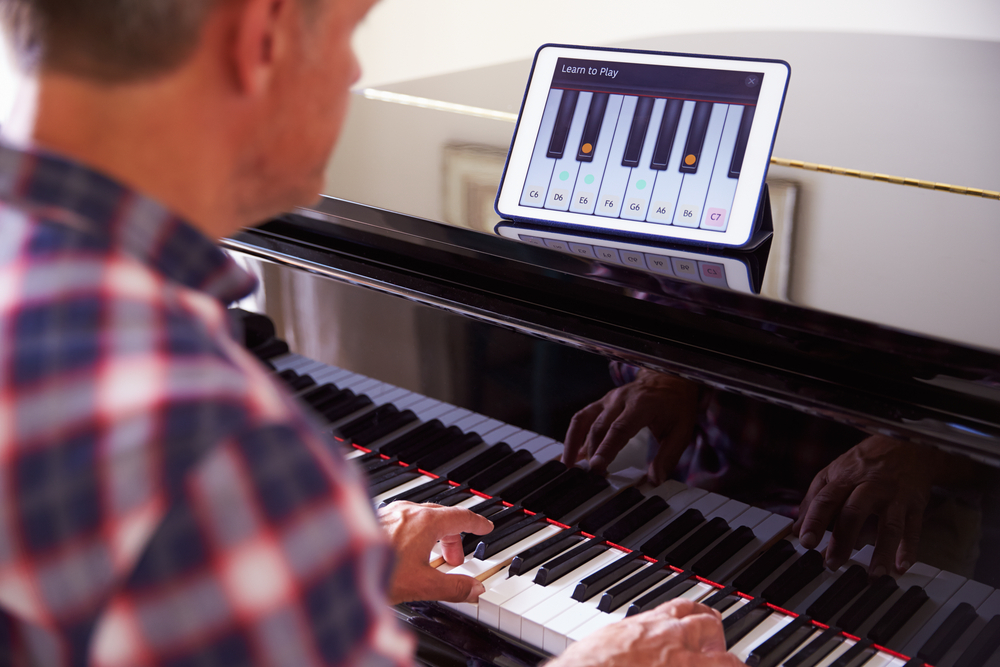Starting A New Hobby Will Sharpen Your Mind
No matter how old you get, you never stop learning, and your brain needs new challenges to stay fit. It’s never too late to start a new hobby – it can be as easy as choosing an item to cross off your bucket list! Have you always wanted to write a novel or learn how to paint? Maybe you’ve dreamed about making furniture or learning how to dance but never pursued it. There’s no better time to challenge yourself and follow your heart than now!
If you need a nudge, here are some great reasons to start a new hobby, along with a few suggestions.
Why Should You Start a New Hobby?
Picking up a new hobby later in life has multiple benefits – top among them is that learning something mentally challenging is good for aging cognitive health. Furthermore, attending a class (even if it’s just virtual!), joining a club, or volunteering at a local nonprofit allows you to meet new people. Research suggests that “sustained engagement in cognitively demanding, novel activities enhances memory function in older adulthood.” Over three months, study participants learned quilt making and photography, along with editing digital photos. The more complex the task, the more their memory function improved.
Pursuing a new interest also relieves stress, boosts self-confidence, delivers a sense of accomplishment, and might uncover a new passion. Hobbies should be fun, make you happy, and help you stay active! To increase the cognitive benefits, you should tackle a hobby that stretches your mind. For example, if you already love to garden, joining a horticulture club to socialize and swap seeds with other gardeners may be fun but won’t challenge you. However, taking a landscape design class might teach you some valuable skills you wouldn’t have had otherwise!
If you’d like to try a new hobby but don’t know where to start, consider trying any – or all – of these suggestions.
Learn a New Language
Learning a foreign language expands your cultural awareness, and you don’t have to be young to acquire this valuable skill. Research shows that bilingualism engages the executive function in the brain. According to The Washington Post, this vital cognitive operation allows you “to control, direct, and manage your attention.” It also activates your memory. Local colleges or community centers frequently offer in-person and online classes, or you can learn multiple languages online via programs like Rosetta Stone.
Play an Instrument
Many hospitals have music therapy programs to help patients cope with severe illness, and research shows that Alzheimer’s patients retain musical memories and gain emotional benefits by listening to music or singing songs themselves. Similarly, learning to play an instrument later in life stimulates your brain and can improve your memory. Plus, the sense of pride you’ll feel after mastering an instrument and the joy you bring to others playing it is a priceless intrinsic reward.
Go Geocaching
Geocaching combines hiking with treasure-seeking and requires a GPS and app to uncover hidden objects. One of the best things about it is that families spanning generations can do this popular outdoor activity together. Older players benefit from physical exercise, learn new technology, and flex mental muscles during the quest.
Take Dancing Lessons
Thanks to reality TV competitions like “Dancing with the Stars,” people of all ages have developed an interest in learning to waltz or do the jive in recent years. Dancing gives you a physical and mental workout. First, you learn (and memorize) step sequences. Then you glide across the dance floor to perform them. To meet new people, you can join a local dance class or dance club. Or you can learn routines from an online instructor or by following a YouTube video.
Join a Photography Class
Photography is a multifaceted hobby that many people enjoy by simply snapping pictures on a smartphone. In a photography class, you learn to use more complex equipment, including various lenses and filters, tripods, and lamps. You’ll also learn how to compose shots, work in a dark room, find interesting subjects, and more. Traveling to other cities or even hiking around your hometown to take pictures also gives you plenty of physical exercise.
Ultimately, there are hundreds of hobbies for you to explore – you just need to get out there and start one!


